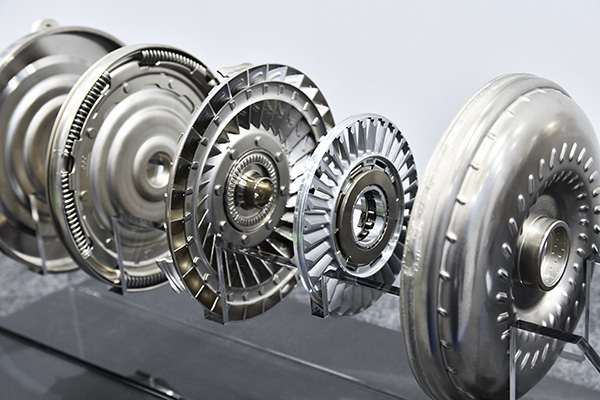
Have you ever wondered what makes your car's automatic transmission function so smoothly? One crucial component often overlooked is the torque converter. It plays a vital role in ensuring your vehicle operates efficiently and comfortably. Let's explore why torque converters are necessary for automatic transmissions.
What Is a Torque Converter?
A torque converter is a type of fluid coupling that connects the engine to the transmission in an automatic vehicle. Unlike a manual transmission, which uses a clutch to engage and disengage the engine from the transmission, an automatic transmission relies on the torque converter to perform this task. It allows the engine to continue running even when the vehicle is stationary, providing a seamless and smooth driving experience.
But what exactly does a torque converter do? Essentially, it transmits and multiplies torque from the engine to the transmission, ensuring that the power is delivered efficiently to the wheels. It also acts as a buffer, absorbing engine vibrations and preventing them from being transferred to the rest of the vehicle.
How Does a Torque Converter Work?
The operation of a torque converter is fascinating and involves several key components working together. Here's a simplified breakdown of how it functions:
- Pump: Attached to the engine's crankshaft, the pump rotates with the engine, pushing transmission fluid into the turbine.
- Turbine: Connected to the transmission input shaft, the turbine receives the fluid from the pump, causing it to spin and transfer power to the transmission.
- Stator: Positioned between the pump and turbine, the stator redirects the fluid from the turbine to the pump, increasing efficiency and torque multiplication.
This fluid-based mechanism allows the torque converter to multiply torque when needed, such as during acceleration from a stop, and provide a smooth power transfer at higher speeds.
Why Is the Torque Converter Necessary?
The torque converter is essential for several reasons, each contributing to the overall performance and efficiency of an automatic transmission:
- It ensures smooth power transfer. By allowing the engine to continue running while the vehicle is stationary, the torque converter eliminates the jarring starts and stops experienced in manual transmissions.
- During acceleration, the torque converter multiplies the engine's torque, providing the necessary power to get the vehicle moving quickly and efficiently.
- The fluid within the torque converter helps dissipate the heat generated by the transmission, protecting the components from overheating and potential damage.
- It offers flexibility and convenience, allowing for a seamless driving experience without the need for manual clutch operation.
Common Issues with Torque Converters
Despite their robustness, torque converters can experience issues over time. Here are some common problems to watch out for:
Slipping
If the torque converter is slipping, you might notice a loss of acceleration or a feeling that the engine is revving higher than usual without a corresponding increase in speed. This can be caused by worn-out internal components or insufficient fluid levels.
Shuddering
A shuddering or shaking sensation during acceleration can indicate problems with the torque converter clutch. This might be due to worn-out friction materials or contaminated transmission fluid.
Overheating
If the transmission fluid temperature is consistently high, it could be due to a malfunctioning torque converter not properly dissipating heat. Overheating can lead to significant damage if not addressed promptly.
Strange Noises
Unusual noises, such as whining or grinding, might suggest issues with the torque converter bearings or internal components.
If you notice any of these symptoms, it's essential to have your vehicle inspected by a professional to prevent further damage.
Maintaining Your Torque Converter
Proper maintenance of your vehicle's transmission system, including the torque converter, is crucial for ensuring longevity and optimal performance. Regular fluid checks are vital to ensure your transmission fluid is at the proper level and free from contaminants. Low or dirty fluid can cause significant issues with the torque converter.
Following your vehicle manufacturer's recommended service intervals for transmission maintenance, which often includes fluid changes and inspections for wear and tear, is also crucial. Addressing issues promptly is essential. If you notice any signs of torque converter problems, such as slipping, shuddering, or strange noises, have them addressed immediately by a qualified technician.
Is your car showing signs of transmission issues? Bring it to Bud's Auto Repair & Transmission for a comprehensive inspection and keep your vehicle in top shape!